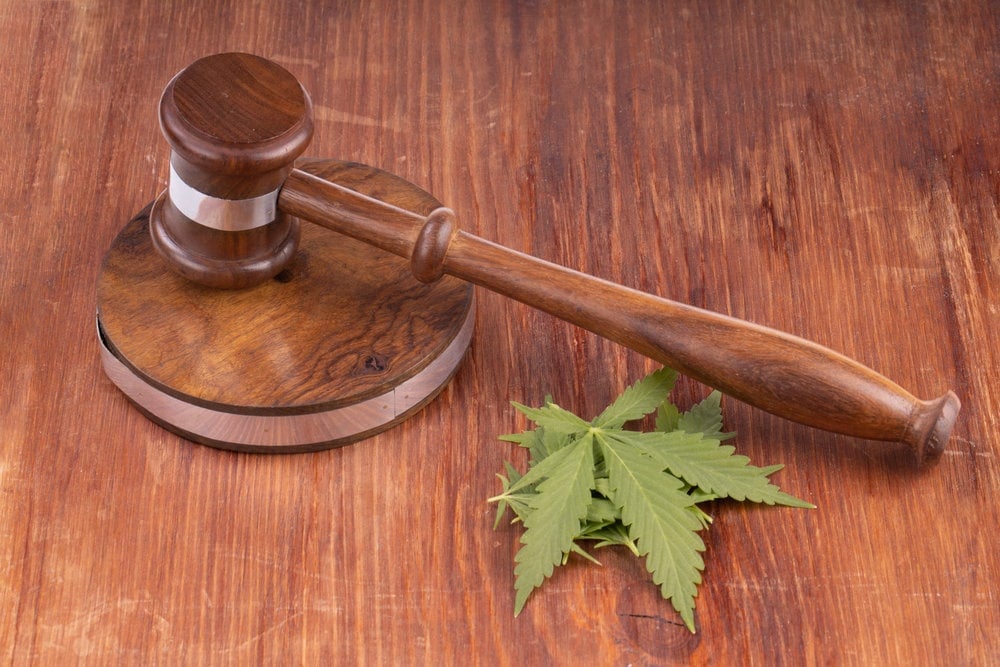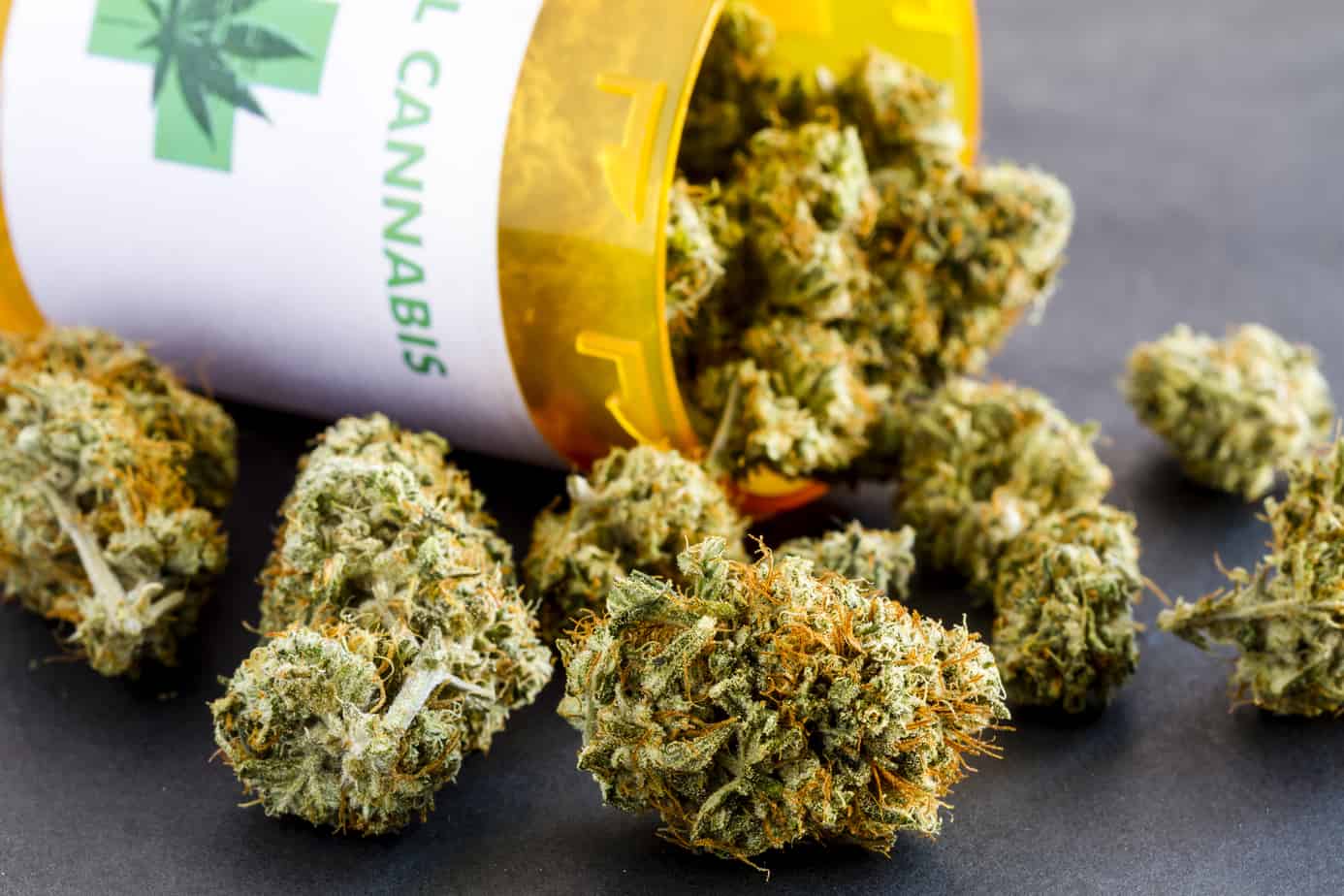The ongoing debate surrounding the legalization of marijuana has supporters from both sides presenting various arguments. As more states and countries shift their policies towards accepting cannabis, understanding the reasons behind this movement becomes increasingly important. This article will delve deeper into the top ten reasons marijuana should be legal, examining the potential benefits that advocates argue will come with legalization.
As we explore these motivations, it is essential to remember the context in which marijuana has historically been viewed. Recent scientific research and public opinion shifts have challenged its portrayal as a dangerous substance. Proponents of legalization argue that this decision could have significant positive outcomes, ranging from medical applications to social equality and economic growth. However, critics raise concerns about potential negative consequences, such as increased addiction and public health risks.
Key Takeaways
- The article explores the reasons for marijuana legalization, considering various benefits and potential concerns.
- The debate includes a range of topics, such as medical applications, social equality, and economic growth.
- Understanding the context and changing public opinion on marijuana legalization aids in comprehending the ongoing debate.
Medical Benefits of Marijuana
Marijuana, specifically its derivatives CBD and THC, has been found to have several medical benefits, including cancer treatment, chronic pain relief, epilepsy and seizure control, and mental health support.
Cancer Treatment
Medical marijuana can help cancer treatment by alleviating the side effects of chemotherapy. This includes reducing nausea and vomiting, which are common side effects of chemotherapy. In addition, it can help stimulate appetite in patients experiencing weight loss due to cancer or side effects of treatment. Recent research has indicated that cannabinoids found in marijuana may also have some potential to slow down or even kill certain cancer cells. However, more studies are needed to confirm these findings.
Chronic Pain Relief
Chronic pain conditions such as neuropathic pain, multiple sclerosis, and fibromyalgia often do not respond well to traditional pain medications. Medical marijuana is an effective alternative for relieving patients suffering from these conditions. The cannabinoids in marijuana, particularly THC and CBD, interact with the body’s endocannabinoid system, resulting in pain relief. These substances can also help reduce inflammation, which is often a contributing factor to chronic pain.
Epilepsy and Seizure Control
Medical marijuana has shown promise in treating epilepsy and managing seizures, particularly in cases of treatment-resistant epilepsy. CBD, one of the main compounds in marijuana, is thought to be responsible for the anti-seizure effect. In studies, CBD has been shown to significantly reduce the frequency and severity of seizures in children and adults with various forms of epilepsy.
Mental Health Support
Marijuana can also provide mental health support for patients with depression, anxiety, and PTSD. Research suggests that medical marijuana can help alleviate symptoms associated with these conditions due to its ability to regulate mood, reduce stress, and promote relaxation. However, it is vital to note that for some individuals with these mental health conditions, marijuana use can have adverse effects, so it is always critical to work with a medical professional to determine an appropriate treatment plan.
In conclusion, medical marijuana has potential benefits in treating various conditions, from cancer and chronic pain to epilepsy and mental health disorders. However, there is still a need for more research and controlled studies to understand the extent and limits of these benefits fully.
Economic Impact of Legalization
Tax Revenue Generation
Legalizing marijuana has resulted in significant tax revenue generation for states where it has become legal. By taxing marijuana sales, states like Colorado and Washington have seen millions of dollars of additional revenue, which can be used to fund government programs, education, and healthcare. These states have shown that marijuana legalization can serve as a valuable revenue stream for state and local governments.
Job Creation
Marijuana legalization has also led to creating new jobs in states where it has been legalized. The growth of the marijuana industry has opened up opportunities for employment in various sectors – from cultivation and processing to sales and distribution. This job creation can play a vital role in reducing unemployment rates and strengthening local economies.
Economic Growth
At the federal level, the nationwide legalization of marijuana has the potential to contribute to overall economic growth significantly. By opening up this new industry, businesses can emerge, innovate, and compete, driving further economic expansion. Additionally, marijuana legalization can help combat the negative economic impacts of the black market and the resources spent on law enforcement and incarceration of individuals involved in illegal marijuana activities.
With more states, including the District of Columbia, choosing to legalize marijuana for medicinal or recreational use, the tax revenues, job creation, and economic growth generated from this movement are becoming increasingly evident. These economic benefits, combined with the potential decrease in crime rates and other social impacts, make a strong case for the continued legalization of marijuana across the United States.

Social Justice and Equality
Racial Disparities in Arrest Rates
Despite similar rates of marijuana use between Black and White Americans, there is a stark difference in arrest rates for possession. According to the ACLU, Black Americans are nearly four times more likely to be arrested for marijuana possession than their White counterparts. This points to bias and racial disparities in the implementation of law enforcement practices. By legalizing marijuana, these disparities and injustices can be reduced, creating a more equitable society.
Reduced Prison Population
The United States has one of the highest prison populations in the world, with many inmates serving time for non-violent drug offenses, including marijuana possession. Legalizing marijuana would decrease the number of people incarcerated for possession and free up resources in the already overcrowded and strained prison system. Furthermore, this would reduce the burden on taxpayers, who financially support the criminal justice system.
Fairer Law Enforcement Practices
Current policies related to marijuana often lead to inconsistent and sometimes unfair law enforcement practices. Penalties for possession can range from small fines to imprisonment, depending on the jurisdiction and amount possessed. Furthermore, the enforcement of marijuana-related laws disproportionately targets Black Americans, exacerbating racial disparities in arrest rates. Legalizing and regulating marijuana would create a more uniform and fair legal environment, allowing law enforcement to focus on more pressing public safety issues.
By addressing these important aspects of social justice and equality – reducing racial disparities in arrest rates, lowering the prison population, and creating fairer law enforcement practices – the legalization of marijuana can help improve society and address some of the long-standing issues related to its prohibition.
Comparison with Other Substances
Alcohol vs. Marijuana
When comparing alcohol and marijuana, it is essential to consider their various effects and risks. Regarding risk, alcohol is the more dangerous of the two substances. A comparative analysis of the risks of recreational drugs showed that alcohol was ranked as the highest risk. At the same time, cannabis was considered the lowest risk, making it 114 times safer to use than alcohol.
Alcohol is well-known for causing liver damage, addiction, and a higher risk of accidents and injuries when consumed excessively. On the other hand, marijuana has shown some medical benefits, including relieving spasticity associated with multiple sclerosis, treating appetite loss in individuals with HIV/AIDS and certain types of cancers, and alleviating chronic pain like neuropathic pain.
Effects of Alcohol:
- Liver damage
- Addiction
- Higher risk of accidents and injuries
Medical Benefits of Marijuana:
- Relieves spasticity in multiple sclerosis patients
- Treats appetite loss in HIV/AIDS patients and cancer patients
- Alleviates certain types of chronic pain
Tobacco vs. Marijuana
Tobacco and marijuana are both smoked, leading to certain similarities in how they are consumed. However, the effects and risks associated with these substances differ significantly. Tobacco is a leading cause of serious health problems, including cancer, heart disease, and lung diseases.
On the contrary, marijuana has been found to have several medical benefits, such as providing relief for patients with multiple sclerosis, treating appetite loss associated with HIV/AIDS and certain types of cancers, and alleviating chronic pain. Despite its potential medical benefits, it should be noted that marijuana can also have harmful effects on lung health, especially when smoked. However, this risk is still considered less significant than that of tobacco.
Effects of Tobacco:
- Cancer (lung, throat, mouth, etc.)
- Heart disease
- Lung diseases
Medical Benefits of Marijuana:
- Provides relief for patients with multiple sclerosis
- Treats appetite loss in HIV/AIDS and cancer patients
- Alleviates chronic pain
Regulation and Control
Age Restrictions
Regulating the sale and use of cannabis is crucial to maintain public health and safety. The establishment of age restrictions on the purchase and consumption of cannabis will ensure that only adults can access the substance, preventing its misuse by minors. Most jurisdictions, including those with legalized recreational and medical use of cannabis, have set the minimum age limit at 21 years, following the precedent set by alcohol and tobacco regulations.
Safe Production Standards
By implementing regulations on the production of cannabis, governments can establish and enforce quality and safety standards, ensuring that consumers have access to safe and reliable products. This regulation includes the standardization of THC content, restrictions on the use of pesticides and fertilizers, and testing protocols to prevent contamination. Besides, the sale of cannabis products should be tracked and monitored, allowing for better market oversight and reducing the potential for illegal sales.
Preventing Access to Minors
Another critical aspect of regulating cannabis is to prevent access to minors effectively. Studies have shown that the legalization of cannabis has not led to increased use among teens and minors. However, further regulations, such as mandatory age verification at the point of sale, can help ensure that young people cannot access cannabis products. Moreover, public awareness campaigns and educational programs about the risks and responsibilities associated with cannabis use can help to promote responsible use among adults and discourage experimentation among minors.
In summary, regulation and control of cannabis involve several crucial elements, including age restrictions, safe production standards, and preventing access to minors. Proper implementation of these measures can contribute to a safer and more responsible environment for the recreational and medical use of cannabis.
Decreasing Criminal Activities
Reduced Violent Crime Rates
Legalizing marijuana can lead to a reduction in violent crime rates. By changing the focus of law enforcement from targeting nonviolent drug offenses, such as marijuana possession, to prioritizing more dangerous criminal activity, public safety can be improved. Furthermore, research has shown no significant link between marijuana use and violence, contradicting that marijuana is a leading cause of violent crime. By legalizing marijuana, the criminal justice system can allocate more resources toward addressing and reducing violent crime.
Undermining Black Markets
Legalizing marijuana has the potential to undermine black markets and reduce the crime associated with them. When marijuana is illegal, it creates a lucrative opportunity for criminal organizations to profit from its sale. By legalizing and regulating marijuana, the government can take control of the market and ensure that production and sales are conducted safely and legally. This can decrease crime associated with the illegal drug trade, such as theft and violence, and create a more transparent and accountable system for marijuana sales.

Lowered Drug Cartel Influence
The legalization of marijuana can lead to a decrease in the influence of drug cartels. Criminal organizations, especially drug cartels, maintain a strong hold on the illegal marijuana trade. These cartels’ power over the market can be diminished through legalization, as their primary revenue source from marijuana sales would be taken away. This decrease in influence can reduce overall crime and violence associated with drug cartels, benefiting the criminal justice system and public safety.
Research and Development
Further Study of Marijuana’s Effects
One of the potential benefits of legalizing marijuana is the opportunity for increased research and development. As cannabis becomes legal, researchers will have greater access to investigate the potential effects and benefits of its compounds, such as THC and CBD. This may ultimately lead to a better understanding of how these cannabinoids interact with the human body and contribute to various health outcomes. For instance, the relationship between cannabis use and mental health conditions like depression requires further exploration. By legalizing marijuana, scientists can conduct more comprehensive studies and make more informed conclusions.
New Medical Applications
Cannabis has already shown promise for various medical applications, but its legal status has limited the ability of researchers to investigate these uses further. By legalizing marijuana, new medical applications and treatment options can be discovered. For example, CBD has been found to have potential therapeutic effects for epilepsy, and specific CBD formulations have been approved for treating certain types of epilepsy. Moreover, as more research is conducted, other cannabinoids besides THC and CBD may be identified, offering additional avenues for medical innovation.
Innovations
With the legalization of marijuana, opportunities for innovations in the cannabis industry will increase exponentially. This can lead to new ways to administer the drug, such as improved delivery systems or dosage forms optimized for specific conditions or patient populations. Furthermore, as knowledge about cannabinoids and their effects grows, cannabis products can be tailored to provide more targeted therapeutic benefits. This could result in the development of cannabinoid-based medications tailored to meet the specific needs of individuals, providing increased treatment options for various medical conditions.
Public Opinion
Growing Support for Legalization
In recent years, the public’s view on marijuana has shifted significantly, with more and more people supporting its legalization. According to the Pew Research Center, most Americans now favor legalizing the drug for medical and recreational use. In a Gallup survey, public support for marijuana legalization has increased dramatically, with 31 US states already legalizing medical cannabis use.
The growing support for legalization can be attributed to the perceived medical benefits of marijuana, as 86% of Americans cite this reason as very important. Additionally, 70% of Americans believe that legalizing the drug would free up law enforcement to focus on other types of crime.
Changing Perceptions of Marijuana
Cannabis use in the United States has evolved over the past few decades. Once considered a lost cause, marijuana legalization is now gaining momentum – with changing perceptions playing a crucial role in this shift. The American Trends Panel (ATP) and ATP’s methodology have observed this transition, noting that public views on marijuana have rapidly altered.
In the past, cannabis was commonly associated with negative connotations and considered dangerous. However, as more research emerges about the plant’s potential benefits, the public sentiment has shifted. More Americans are aware that marijuana can be far safer than alcohol, tobacco, and many medications.
This change in attitudes towards marijuana has been a driving force in the growing support for its legalization. As legislation continues to evolve in various states, public opinion on marijuana will likely play a crucial role in shaping the future of cannabis use across the country.
Environmental and Safety Concerns
Regulated Pesticide Use
The legalization of cannabis would lead to the introduction of regulations that govern the use of pesticides in its cultivation process. This would ensure that harmful chemicals less contaminate cannabis products, thus reducing the adverse effects on the environment and human health. In contrast, illegal cannabis farming often uses chemical pesticides that can contaminate water sources, soil and lead to environmental degradation. The regulated use of pesticides also minimizes the risk of consuming contaminated cannabis that could impair the user’s memory and cognitive function or cause other harmful effects.
Decreased Risk of Overdose and Addiction
Legalizing marijuana can help mitigate the risks of overdose and addiction associated with consuming potentially dangerous substances. With a legal and regulated market, consumers would have access to products with consistent potency, quality, and labeling. This allows them to be more informed about what they consume, ultimately reducing the chances of an overdose.
In addition, the availability of legal and regulated cannabis can decrease the demand for more dangerous and addictive substances, such as opioids. This can lead to reduced nonmedical use of prescription drugs and, ultimately, decreased overdoses and addiction cases related to these substances. Legal and accessible cannabis offers individuals a safer alternative than other substances, reducing the risk of dependency and promoting the overall safety of individuals and society.
To summarize, the legalization of marijuana has significant environmental and safety benefits. By regulating pesticide use in cannabis cultivation, it safeguards the environment and human health. Moreover, a legal, regulated market reduces the risk of overdose and addiction by providing consumers with consistent potency and product quality.
10 Reasons Why Marijuana Should Be Legalized
1. Cannabis offers numerous medicinal benefits. Research has shown that marijuana can treat various medical conditions, such as cancer, chronic pain, and epilepsy.
2. Legalizing cannabis could help reduce the stigma associated with its use and increase public acceptance.
3. A regulated market would ensure safety standards are met, reducing the risk of contamination or adulteration of cannabis products.
4. Legalization could reduce the burden on law enforcement by allowing them to focus on more serious crimes rather than arresting individuals for minor drug offenses.
5. Tax revenues generated from legalized cannabis can be used to invest in education and public health initiatives designed to benefit communities affected by substance abuse disorders or other drug-related social issues.
6. Legalization would open up new economic opportunities for farmers, entrepreneurs, and investors.
7. Cannabis could provide an alternative to more dangerous and addictive substances such as opioids or alcohol when used responsibly.
8. It can help reduce the influence of organized crime by eliminating the black market in marijuana products.
9. Legalizing cannabis would allow researchers increased access to study its potential medicinal benefits further.
10. Last but not least, it’s a plant and should be treated like one! Marijuana has been proven to have far fewer health risks than many other recreational drugs and is relatively harmless when used responsibly by adults.



